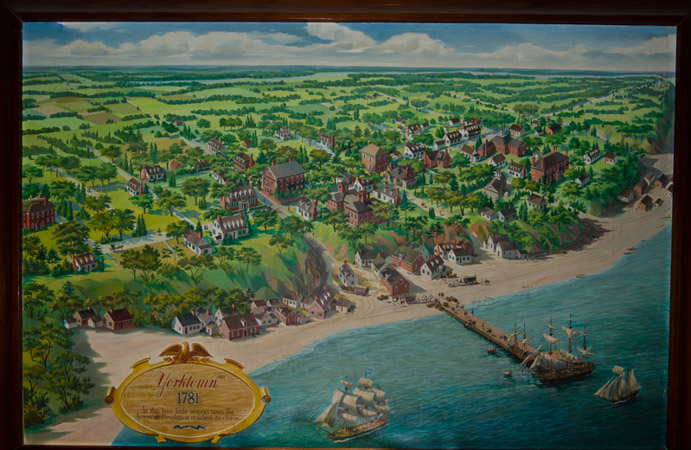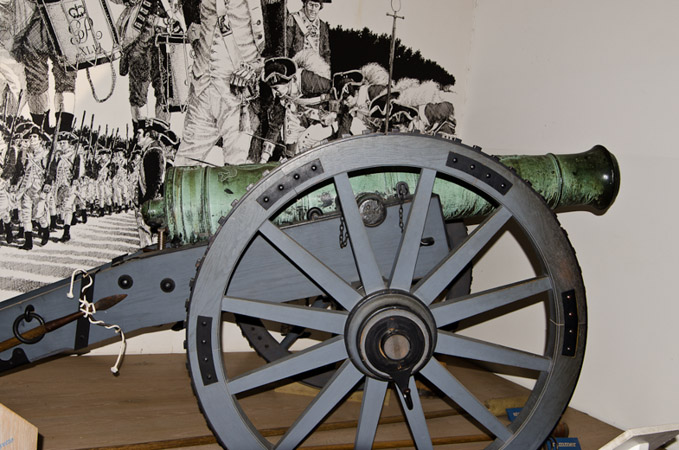Yorktown
 Yorktown is significant in America's history as the last major battle of the American Revolution. The battle was fought between the American and French forces led by George Washington, and the British forces led by Gen. Charles, Lord Cornwallis in 1781. Washington obtained a complete surrender from Cornwallis with a ceremony on what is now called Surrender Hill. Cornwallis turned his sword over to Washington to conclude the surrender.
Yorktown is significant in America's history as the last major battle of the American Revolution. The battle was fought between the American and French forces led by George Washington, and the British forces led by Gen. Charles, Lord Cornwallis in 1781. Washington obtained a complete surrender from Cornwallis with a ceremony on what is now called Surrender Hill. Cornwallis turned his sword over to Washington to conclude the surrender.
The British did not recognize Cornwallis's surrender, as a complete British surrender, and continued their fight for another two years, mainly with the two forces looking across each other in New York. In September of 1783 the final treaty was signed in Paris France, it was titled; "The Treaty of Paris" and was signed by the four major world powers, Britain, France, Spain and the Netherlands.
Britain now recognized the United States as independent. The United States declared independence on July 4, 1776. It took seven years of war to obtain independence. There is a huge difference between declaring independence and obtaining it.
between declaring independence and obtaining it.
Yorktown was a shipping port in the 1700's, primarily tobacco, and was devastated in 1781. It never gained the colonial prominence it lost in 1781, deep shipping ports moved away, and today it is a small village. Yorktown is part of the area's historic triangle and hosts a National Park, museum, and remnants of the revolutionary war.
Park rangers conduct seminars and are knowledgeable and enthusiastic in their delivery. Many historic facts are brought to light in the Rangers delivery that are not readily found in the majority of history books.
Diane and I stopped for lunch at the Yorktown Pub and obtained a window seat overlooking the York River. To view the slideshow click here.